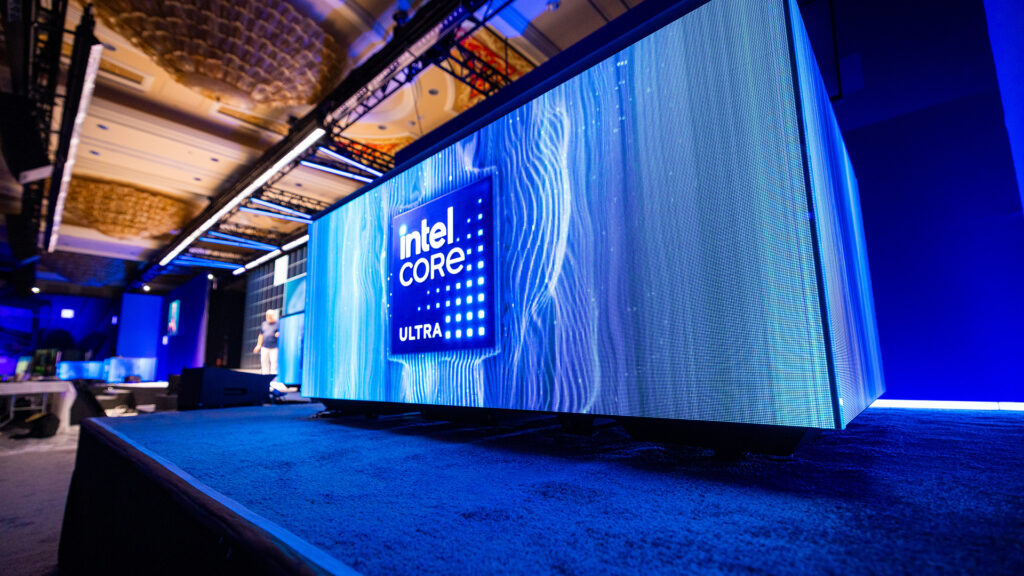
Intel’s latest keynote has set a transformative course for the future of personal computing. The event showcased the company’s groundbreaking innovations in artificial intelligence (AI), illustrating a vision where PCs are no longer just tools but intelligent companions that adapt, optimize, and enhance everyday experiences. With AI at the heart of its strategy, Intel is redefining what’s possible in personal computing.
A Vision for the AI-Powered PC Revolution
Intel’s keynote highlighted a clear message that AI is no longer a futuristic concept but a core component of computing today. The company revealed its mission to bring AI from the cloud to the device, enabling real-time decision-making, improving user privacy, and enhancing efficiency.
According to Intel, embedding AI into the PC architecture will fundamentally shift how users interact with technology, enabling a more intuitive, responsive, and personalized experience across industries like education, creative work, gaming, and professional productivity.

Key Announcements and Innovations
Intel unveiled several key improvements during the keynote, each designed to upgrade the PC’s capabilities through AI. Here are the standout features and technologies:
On-Device AI Processing
One of Intel’s hallmark announcements was the integration of dedicated AI processors directly into PCs. Unlike traditional systems that depend on cloud-based AI, Intel’s approach focuses on local AI processing, ensuring faster execution, reduced latency, and enhanced privacy. This technology will power a range of real-time applications, including:
- Voice Assistants: Accurate and instant voice recognition without internet connectivity.
- Image and Video Processing: Real-time enhancements for photos and videos, including noise reduction, object detection, and improved rendering.
- Data Analysis: On-device machine learning models capable of delivering insights and predictions on the fly.
Revolutionizing Collaboration
Intel showcased AI-driven tools tailored for the modern era of hybrid work. These include advanced noise suppression for video calls, real-time transcription, automated meeting summaries, and adaptive video quality adjustments based on bandwidth. These features aim to make collaboration seamless and productive by addressing common frustrations in remote work setups.
Empowering Content Creators
For creative professionals, Intel’s AI technology promises to revolutionize workflows. The keynote demonstrated how AI could automate time-consuming tasks such as:
- Video Editing: AI-powered tools that suggest cuts, transitions, and colour corrections.
- Music Production: Automatic tempo matching, instrument separation, and mastering.
- Graphic Design: Intelligent layout suggestions and object removal for faster project completion.
Transforming Gaming Experiences
Gaming took center stage during the keynote, with Intel highlighting how AI will redefine immersion and performance. The key developments include:
- Dynamic Graphics Optimization: AI algorithms adjust settings in real-time for the best visuals without compromising frame rates.
- Enhanced NPC Behavior: Smarter, more realistic, non-playable characters (NPCs) powered by AI-driven logic.
- Adaptive Gameplay: Personalized difficulty levels and content adjustments based on player behaviour.
These advancements aim to blur the lines between reality and virtual worlds, delivering unparalleled gaming experiences.
Fostering an AI Ecosystem for Developers
Intel recognizes the critical role developers play in shaping the AI landscape. To support innovation, the company introduced advanced AI frameworks and development tools. These include pre-trained machine learning models, APIs, and toolkits that make it easier to create AI-powered applications.
This initiative ensures that developers, whether they’re building for education, entertainment, or enterprise, have the resources to push the boundaries of what AI can achieve.
Privacy and Security at the Core
Intel’s approach to on-device AI processing not only boosts performance but also addresses growing concerns about data privacy. By performing AI computations locally, Intel ensures sensitive data remains on the user’s device, minimizing the risks associated with cloud-based breaches.
This privacy-first approach aligns with the rising demand for secure digital environments, giving users peace of mind while benefiting from cutting-edge technology.
A Glimpse into the AI Future
Intel closed its keynote with an exciting vision of the future. AI-enabled PCs will act as intelligent assistants, capable of:
- Anticipating user needs and automating repetitive tasks.
- Learning user preferences to deliver personalized experiences.
- Streamlining complex processes in education, healthcare, and beyond.
The integration of AI into personal computing isn’t just about innovation, but it’s about creating meaningful impacts that enhance lives, productivity, and creativity.

